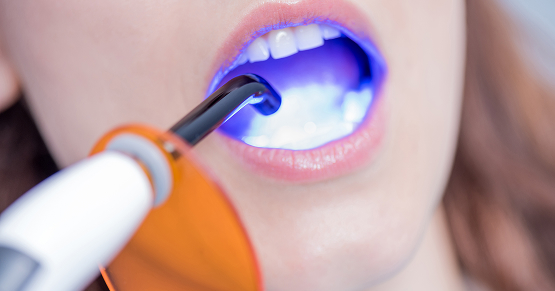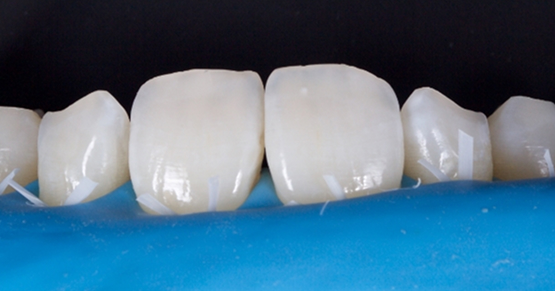Checking In on Your Mental Health — Why It Matters Now More Than Ever
Recent research from the American Psychological Association paints a disturbing picture about mental health issues in young adults today.1 According to APA findings, the percentage of young Americans experiencing certain types of mental health disorders has risen significantly over the past decade.
This is especially important in the wake of COVID-19, which was a challenging year for mental and physical health worldwide. Considering that many of us spent much of last year confined to our homes, restricted by curfews and wondering when it would end, it’s impossible to talk about mental health in 2021 without considering the effect of current events.
And as dental practitioners who play an important role in the wellness of our patients, it’s important we recognize that mental health is just as important as oral health – if not more.
Perceptions of mental illness:
What’s changing and why?
Even before the pandemic began, mental illness among young adults was on the rise2 — but as COVID-19 cases began to rise across the country, so did reports, research, and awareness initiatives related to mental illness and health.
According to a recent report from the Centers for Disease Control, there has been an upward trend in suicidal ideation, anxiety, and depression among adults due to loneliness or isolation. The same report also highlights disproportionate access to care and treatment for people in Black, Indigenous, and other communities of color.3
The mental health ripple effect of the pandemic was profound and wide-reaching. Virtually everyone was affected in one way or another. Across the country, young children suddenly unable to socialize in a traditional classroom setting struggled to learn in the confines of their homes and screens. Meanwhile, tired parents struggled to balance childcare, homeschooling, and their own careers.
The effects carried over into our physical health as well. People who lost their jobs during the pandemic inevitably lost access to health care as well, which often included medications, dental care, and potentially life-saving medical procedures.
Though the pandemic is slowly coming to a close as vaccine rates rise, many still feel the negative impact of the pandemic today — especially in regard to mental health.
Checking in with yourself and your practice team — why it still matters
The challenges of the pandemic understandably contributed to an overall decline in mental health, and many health care providers believe this decline is an explanation, at least in part, for the recent shift in patients’ perceptions about their oral health and care.
But to remain grounded and mentally well amid a constantly changing public health landscape, it’s also crucial for dentists and their teams to learn the mental and physical wellness strategies they’ll need to forge ahead even in times of uncertainty. When we are unable to manage the stressors in our own lives, other aspects of our lives will inevitably suffer — and that includes our work with patients.
Even as the pandemic recedes into the background, continue to check in on yourself, your family, your team, and your patients.
References
- Twendge J, Joiner T, Cooper B, Binau S, 2019. Age, period, and cohort trends in mood disorder indicators and suicide-related outcomes in a nationally representative dataset, 2005–2017. [online] https://www.apa.org. Available at: https://pubmed.ncbi.nlm.nih.gov/30869927/
- The State of Mental Health in America. Mental Health America. https://mhanational.org/issues/state-mental-health-america. Published 2020. Accessed June 28, 2021.
- Czeisler MÉ , Lane RI, Petrosky E, et al. Mental Health, Substance Use, and Suicidal Ideation During the COVID-19 Pandemic – United States, June 24–30, 2020. Centers for Disease Control and Prevention. https://www.cdc.gov/mmwr/volumes/69/wr/mm6932a1.htm. Published August 13, 2020. Accessed June 28, 2021.
- Javed B, Sarwer A, Soto EB, Mashwani Z, 2020. The coronavirus (COVID‐19) pandemic’s impact on mental health. [online] https://www.apa.org. Available at: www.ncbi.nlm.nih.gov/pmc/articles/PMC7361582/
SPEAR NAVIGATOR
Transform how your practice runs by engaging the team through
coaching and training
A guided path to excellence through structured coaching and self-guided resources that will align your team, streamline processes and drive growth. Transform your practice by implementing Spear’s proven playbooks for developing and retaining a high-performing dental team.
SPEAR STUDY CLUB
Join a Club and Unite with
Like-Minded Peers
In virtual meetings or in-person, Study Club encourages collaboration on exclusive, real-world cases supported by curriculum from the industry leader in dental CE. Find the club closest to you today!
SPEAR ONLINE
Team Training to Empower Every Role
Spear Online encourages team alignment with role-specific CE video lessons and other resources that enable office managers, assistants and everyone in your practice to understand how they contribute to better patient care.
SPEAR campus
Hands-On Learning in Spear Workshops
With enhanced safety and sterilization measures in place, the Spear Campus is now reopened for hands-on clinical CE workshops. As you consider a trip to Scottsdale, please visit our campus page for more details, including information on instructors, CE curricula and dates that will work for your schedule.
VIRTUAL SEMINARS
The Campus CE Experience
– Online, Anywhere
Spear Virtual Seminars give you versatility to refine your clinical skills following the same lessons that you would at the Spear Campus in Scottsdale — but from anywhere, as a safe online alternative to large-attendance campus events. Ask an advisor how your practice can take advantage of this new CE option.
FOUNDATIONS MEMBERSHIP
New Dentist?
This Program Is Just for You!
Spear’s Foundations membership is specifically for dentists in their first 0–5 years of practice. For less than you charge for one crown, get a full year of training that applies to your daily work, including guidance from trusted faculty and support from a community of peers — all for only $599 a year.

By: ArNelle Wright
Date: July 5, 2021
Featured Digest articles
Insights and advice from Spear Faculty and industry experts



